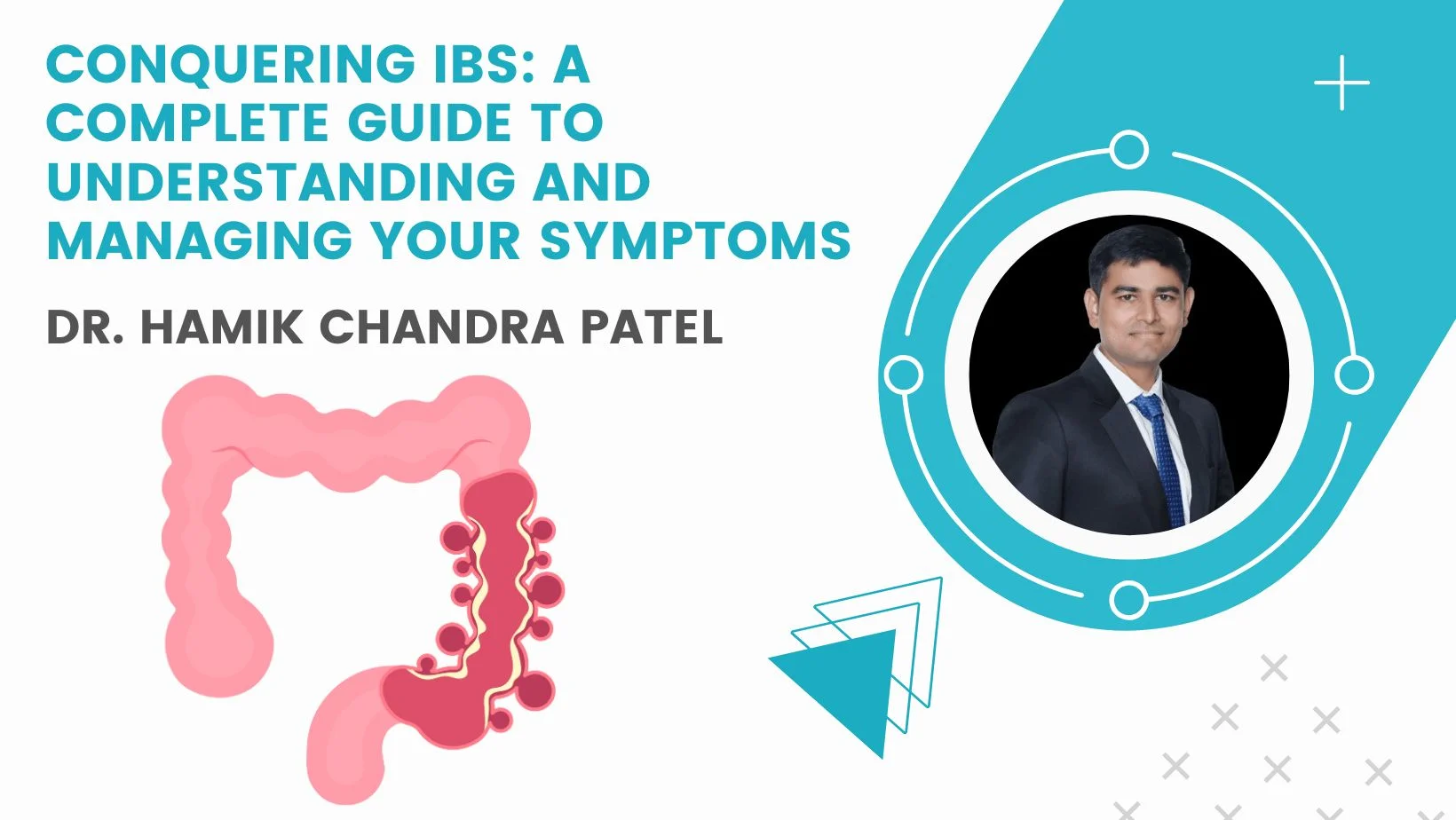Conquering IBS: A Complete Guide to Understanding and Managing Your Symptoms
Introduction
Irritable Bowel Syndrome (IBS) is a common gastrointestinal disorder that affects millions of people globally. IBS can significantly affect the quality of life of an individual, with abdominal pain, bloating, and altered bowel habits as its cardinal features. This guideline goes ahead to expound on the signs, causes, and management of IBS for further understanding on ways of managing it well.
What is IBS?
Irritable bowel syndrome is a functional gastrointestinal disorder of the large intestine. Unlike other digestive disorders, IBS inflicts no apparent damage to the digestive tract but rather causes persistent symptoms that are uncomfortable and can render one debilitated. It is a syndrome because it consists of a constellation of symptoms that normally happen simultaneously.

Types of IBS
IBS can be categorized into four chief types depending on the principal bowel habits:
- IBS with constipation (IBS-C): Principal feature hard lumpy stool.
- IBS with diarrhea (IBS-D): Here, the stools are loose and watery.
- Mixed IBS (IBS-M): The condition is characterized by an alternation between constipation and diarrhea.
- Unsubtyped IBS (IBS-U): The patient does not fit well in any category.
Common IBS Symptoms
There can be mild to severe symptoms in a person suffering from IBS. Other common symptoms include:
- Abdominal pain or cramping
- Bloating and gas
- Diarrhea, constipation, or both
- Mucus in the stool
- A feeling of incomplete bowel movement
- Changes in bowel habits
Causes of IBS
The exact cause of IBS is not known, but several factors may contribute to the development of the disease:
- Abnormal gut motility: Irregular muscle contractions in the intestine can cause the symptoms.
- Visceral hypersensitivity: Enhanced gut sensitivity to pain.
- Gut-brain interaction: Abnormal communication between the gut and brain.
- Inflammation: Low-grade inflammation within the bowels.
- Infections: Infections in the gastrointestinal system and bacterial overgrowth in the gut.
Risk Factors for IBS
There are several risk factors that are associated with IBS, which include:
- Gender: Females tend to be more at risk of developing IBS.
- Age: IBS usually begins before the age of 50 years.
- Family history: A history of family members with this disorder increases the susceptibility.
- Mental health problems: IBS is normally related to mental health issues such as anxiety, depression, and other types of mental-related complications.
- Diet: Specific foods can worsen the situation of IBS.
Diagnosis of IBS
IBS is diagnosed based on a thorough medical history and physical examination. Criteria and tests that medical professionals may use include:
- Rome Criteria: A list of symptoms and the duration for which the symptoms have been present.
- Blood tests: To rule out other causes for the symptoms.
- Stool tests: To search for infection.
- Colonoscopy or sigmoidoscopy: Inspection of the colon for signs of abnormality.
Diet and IBS: Foods to Eat and Foods to Avoid
Diet forms a crucial component in the management of IBS. Here are some dietary recommendations:
Foods to Eat:
- Low-FODMAP foods (foods low in fermentable oligosaccharides, disaccharides, monosaccharides, and polyols)
- High-fiber foods for IBS-C
- Lean proteins
- Hydrating foods
Foods to Avoid:
- High-FODMAP foods (certain fruits, vegetables, dairy, and grains)
- Fatty foods
- Caffeine and alcohol
- Artificial sweeteners
Lifestyle Changes to Manage IBS
In addition to dietary changes, adopting a healthy lifestyle can help manage IBS symptoms:
- Regular exercise: Helps regulate bowel movements and reduce stress.
- Adequate sleep: Inadequate sleep worsens the symptoms.
- Stress management: Through techniques such as meditation, yoga, and deep breathing that reduce the levels of stress.
- Adequate fluid: In taking plenty of water assists in controlling digestion.
IBS Drugs
There are various drugs used in treating Irritable Bowel Syndromes and include:
- Fiber supplements: Aim at bulking stool for IBS-C
- Laxatives: To clear constipation for IBS-C
- Anti-diarrheal medicines: To minimize diarrhea for IBS-D.
- Antispasmodics: To reduce abdominal pain and spasms.
- Antidepressants: Small doses can relieve pain and even mood.
Natural Remedies and Alternative Therapies
Some patients alleviate IBS with natural and alternative therapies:
- Probiotics: Good bacteria, help to make better the gut health.
- Peppermint oil: Can relieve abdominal pain and bloating.
- Acupuncture: Could reduce pain and stress.
- Herbal teas: Such as chamomile and ginger can settle the digestive system.
Role of Stress in IBS
Stress is the number one cause of IBS. The gut-brain axis means that stress can directly affect digestive health. Chronic stress can worsen the symptoms of IBS, making stress management a critical part of treatment.
IBS in Kids: Symptoms and Management
Even kids can be affected by IBS, and symptoms are similar to adults’ but include:
- Abdominal pain and cramps
- Diarrhea, constipation, or both
- Nausea and bloating
Management of IBS in kids involves:
- Dietary adjustments
- Regular exercise
- Reducing stress
- Medications; the right use should be followed under the guidance of a pediatrician
Gender Differences in IBS
IBS affects men and women differently. The frequency of reporting symptoms is generally higher among women and increases further around the time of their menstrual cycle, which points toward hormonal influence. For men, it may be the case that they do not show the intensity of disease, suggesting an underreported condition.

Long-term Complications of IBS
Despite the fact that IBS has no potential to harm the intestines in the long term, it can cause a few complications:
- Chronic pain and discomfort
- Anxiety and depression
- Hampered quality of life
Living with IBS: Tips and Advice
Living with IBS requires an active involvement in managing the symptoms:
- Maintain a food diary and stay away from the factors that trigger it.
- Establish a routine for meals and sleep.
- Maintain good exercise in your daily activities.
- Talk to friends, family, or join support groups.
Myths and Misconceptions about IBS
There are quite a number of misconceptions out there about IBS. The following are a few examples:
- IBS is all in your head: Even though stress affects IBS, the condition is very much real and physiological.
- IBS only affects women: Well, you will be wrong to assume that men do not get IBS.
- IBS always causes severe symptoms: Symptoms always range from moderate to severe.
Support Groups and Resources for IBS
Other people who have IBS can provide you with resources for support, care, and practical information. These resources include the following:
- Online Forums and support groups
- IBS websites and organizations
- Counseling and therapy
Most Recent Research and Developments in the Treatment of IBS
Ongoing study is making our knowledge about IBS better and leading to better treatments. Current developments that follow:
- Medication discovery targeting gut bacteria and motility
- Improvement in diagnostic tools
- Personalized treatment that is gauged on individual genetic and microbiome evaluation
Conclusion
Knowledge about IBS is the first important step toward management. Recognition of symptoms, identification of triggers, and leading a healthy lifestyle enable an individual suffering from IBS to lead a full life. Ongoing studies continue to give hope for better treatments and improved quality of life for those affected by this condition.












Leave a Reply